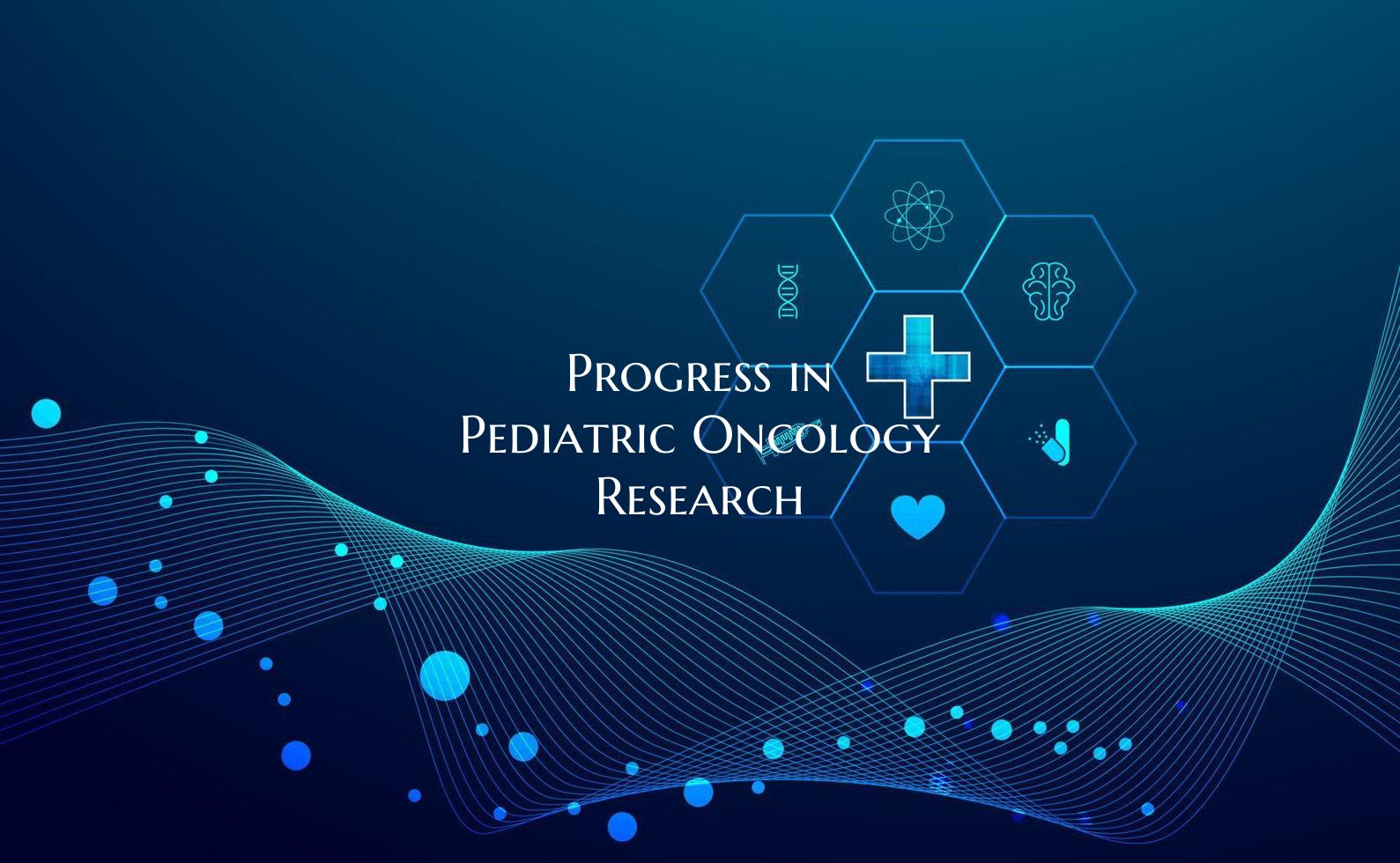
Progress in Pediatric Oncology Research
Introduction: Pediatric oncology involves the diagnosis and treatment of cancer in children. Over the past few decades, significant progress has been made in the field of pediatric oncology research. This progress has led to improved outcomes for children diagnosed with cancer, as well as a better understanding of the disease and its underlying mechanisms.
Advancements in Treatment: One of the key areas of progress in pediatric oncology research has been in the development of new and improved treatment options for children with cancer. These include targeted therapies that specifically target cancer cells, reducing the side effects associated with traditional chemotherapy. Additionally, advancements in precision medicine have allowed for personalized treatment plans based on a child's unique genetic makeup, improving treatment outcomes and reducing unnecessary treatments.
Early Detection and Diagnosis: Another significant advancement in pediatric oncology research is the improvement in early detection and diagnosis of childhood cancers. Early detection allows for timely intervention and treatment, leading to better outcomes for children with cancer. Advances in imaging technologies, biomarker identification, and genetic testing have all contributed to early diagnosis and improved survival rates.
Survivorship and Quality of Life: Research in pediatric oncology has also focused on long-term survivorship and quality of life for children who have been treated for cancer. Studies have been conducted to understand the physical, emotional, and psychological effects of cancer treatment on children and to develop interventions to improve their overall well-being. Additionally, survivorship programs have been established to provide ongoing care and support for childhood cancer survivors, addressing any late effects of treatment and ensuring a high quality of life.
Collaboration and Multidisciplinary Approach: Progress in pediatric oncology research has been facilitated by collaboration among researchers, healthcare providers, and advocacy organizations. A multidisciplinary approach that brings together experts from various fields, including oncology, genetics, psychology, and social work, has been instrumental in advancing our understanding of childhood cancers and improving treatment outcomes.
Conclusion: The progress made in pediatric oncology research has transformed the way we diagnose, treat, and support children with cancer. With continued research, innovation, and collaboration, we can further improve outcomes for children with cancer and move closer towards finding cures for these devastating diseases.